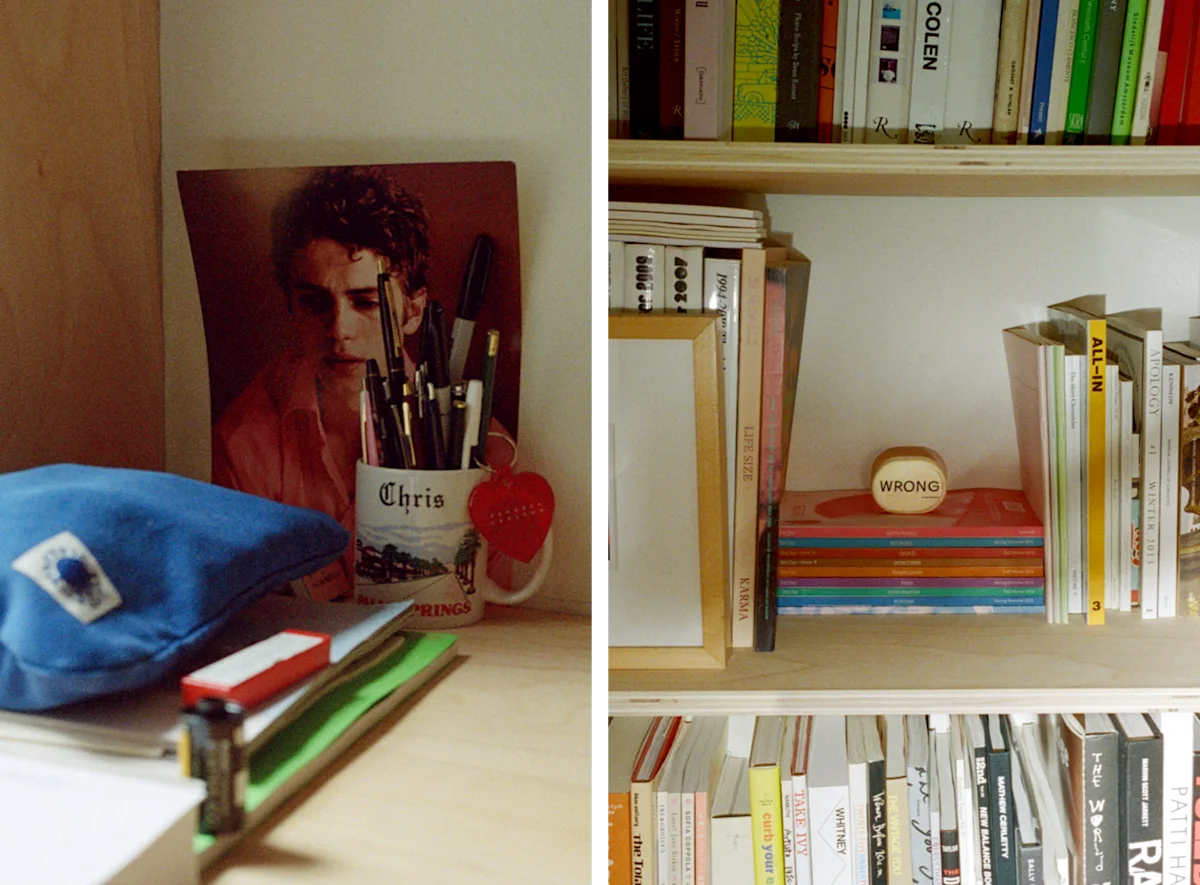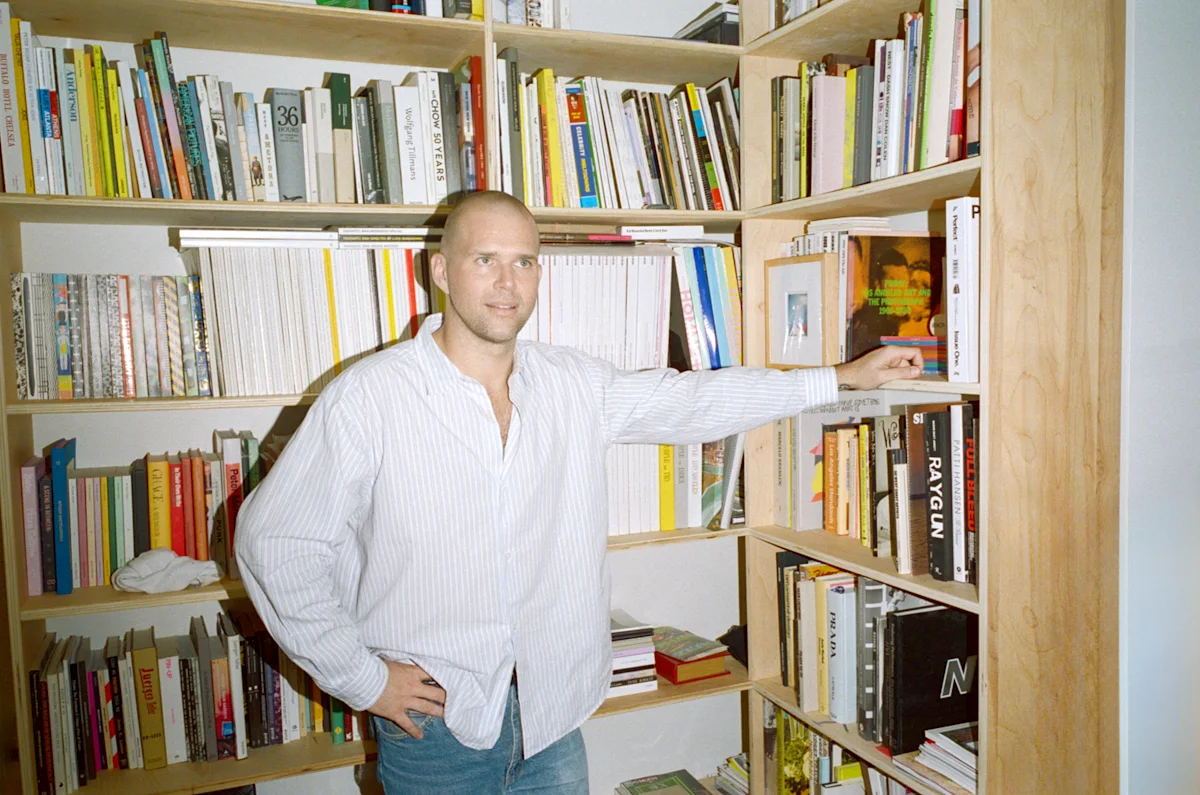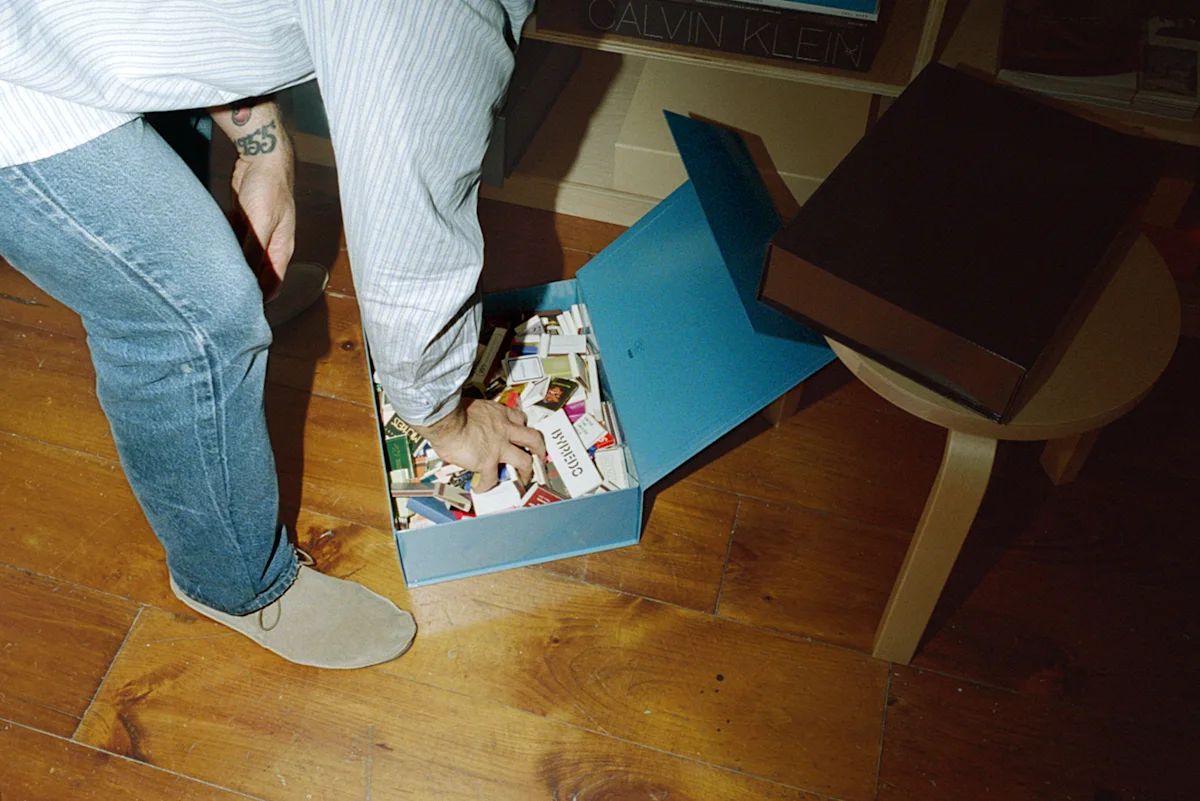A book that Chris Black wrote in 2015 is making the rounds on TikTok, thanks to a British influencer. I Know You Think You Know It All was originally geared towards the guy who’s easily swayed, not quite discerning, and delusional about his own impact.
The advice was meant to help them develop their own point of view. “A lot of that advice felt really timely then,” Black says over Zoom, “but I think it actually was pretty evergreen.” And he’s not wrong: Today, there are still content curators and self-described creatives with the same moodboards; now the reference photos are from ALD, Bode and vintage J.Crew campaigns. And they definitely listen to How Long Gone. Chris Black, who co-hosts the podcast with longtime friend Jason Stewart, makes fun of these people almost every week on their podcast. People rely on someone like Chris Black to sift through everything and guide them through the choice paralysis. The brand consultant has made a career out of being in the know, and has helped brands like New Balance, Stüssy and now J.Crew revamp and rebuild. His knack isn’t just widening exposure or reach, but guiding the right people to something that can speak to them. He’s a go-to source on what’s cool, annoying or worthy of more attention. He’s sought out for advice on everything from push presents to sock recommendations in his Strategist column. And for every Chris Black opinion, there is an equally strong reaction. A few weeks before our interview, he denounced no-show socks, which led to such passionate online discourse he thought he was going to get doxxed. No matter the consequences or what he says, everyone still wants Chris Black to weigh in. I talked to him ahead of the How Long Gone live show at The Great Hall in July. We unpacked his love of Toronto, gatekeeping and what it means to have taste.
In case people didn’t know: you’re a Toronto girlie. Why do you come here so much?
⎯⎯⎯ I’m a not-so-secret Toronto girlie now. Toronto mimics New York or London in a way that people are doing stuff. Doing shit in a city like New York is hard – you can’t do anything without having to raise, like, $10 million. A place like Toronto has a real culture and seems relatively accessible for people to open and start things. That makes a place grow and it makes it good. It's reasonable for your peers to do good things here, whether it's at the Matty Matheson level or my friend Adrian [Montesdeoca] level with Better Gift Shop and opening all these restaurants. Everytime I come back, Adrian's opened another fucking restaurant. There’s always a casual approach to everything here that doesn't affect the quality. And that's the best.

This is also your second How Long Gone Live in Toronto. You really engage with the city and troll it. That seems to resonate here.
⎯⎯⎯ Jason [Stewart] and I see the data and know people are listening here. That’s why we’ll do a live show. We’ll collaborate with Better Gift Shop and Avi Gold. We’ll do Cold Pod. We’ll do the after party at Bowie. We know people here and we know the community, so we engage with it because it's just reciprocal. And that’s the way it should be. It’s nice to dip your toe in and really feel like you understand and know a place — enough to come back.
Do you find listeners consider How Long Gone as a guide to living?
⎯⎯⎯ People like that element of hearing about restaurants and hotels and all that stuff. I love talking about the ins and outs of everything and if things are good, I want people to know. And if things are bad, we have to talk about it. When I was a kid and went on family vacation in Charleston, South Carolina, I got all of the guide books and magazines and mapped out restaurants. I've been doing this kind of thing for a long time.
I know I’m a bit branded as someone who hates everything, but I actually like things as passionately as I dislike them. The thing is that I have to keep up. I have to see as much as I can. That's my job. And once you make the decision, whether conscious or subconscious, to know what’s going on, then you train your brain to be like: I don't need to care about this. I don't need to know this. I need to know this. It's exhausting, but I have chosen this path.
As much as people rely on you to tell them where to eat, what to buy, and what’s cool – you also get in trouble for your strong opinions. Why is that?
⎯⎯⎯ At this point, society has too much access to people's opinions. And people take things personally. For me, someone saying they like or don’t like something does not affect how I view that thing. Those sunglasses are fucking ugly? Well, I like them. Sorry, I don't care. Everybody wants to please everyone and not ruffle any feathers. At this point, where we are culturally, saying you don't like a band could make people mad. And that's not necessarily healthy. But I think it's good for podcasts. It’s good for me and it's good for business.

Does outrage fuel the discourse?
⎯⎯⎯ Everything is intellectualized and discussed to the Nth degree now. Sometimes that uncovers great, interesting things. Oftentimes, it's just like, why is this here? Did you have to do this? Do you have a quota from your employer? But then there’s New York Magazine (I mean, I do write for it) – who have become experts at finding topics people lose their fucking minds over. The nepo baby thing? Think of the traffic on that. The it girl thing? Think of the traffic on that. It's perfect for the age we live in because it's juicy, salacious, sexy, there’s money involved and, you know, it's got all of it. That is what gets people so enraged. But the question we do have to ask is: Are you writing this because it's how you really feel or because you know what it's going to do? Oftentimes those things can coexist but other times that may not be the case.
What’s your stance on another controversial topic: gatekeeping?
⎯⎯⎯ I think of gatekeeping as the responsibility of giant corporations. It should be harder to put your music on Spotify. We need some gates on that. We’re all so paralyzed by choice and the idea is to overload us versus only giving us what's great. There used to be X amount of record labels and CDs only came out on Tuesday. And that’s when you went to the store. It was a very different thing. Now it's all so passive. I could record myself screaming into a microphone, put it online and you could listen to that tomorrow. That’s fucked. We don't need that.
How does that affect something like taste? It’s much harder to hone – or it’s harder for people to figure their personal taste out.
⎯⎯⎯ Part of me is like, we all have access to so much so they should get better. The opposite has actually happened. In a lot of facets of society, there is a focus on convenience and comfort. And that's all that matters. I want everything delivered to me. I want to fucking wear sweatpants. I don't want to have to think about it. I want to be left alone – that is the problem. We're prioritizing the wrong things. We're prioritizing comfort and ease over actually having to think about something or actively enjoying something versus passively scrolling on your phone. It's much easier that way, right? If you watch some fucking YouTuber all day, and just follow what they do, that's easier than having to parse that yourself.

You just started a new column at GQ where you flesh out your opinions more. How does it feel being edited?
⎯⎯⎯ With writing, it takes me hours to get the same idea across that I could just say on the show. But writing, like anything else, it gets easier the more you do it and that’s partly why I committed to a weekly column. The only way to get better is to just do it all the time. And it’s great to have a back and forth with my editor, Nick Catucci, because I’m learning something. I’m not some master with my vocabulary or technically gifted with my prose, but I can get the raw material to a place that feels pretty good. Having an editor help you reimagine it is so beneficial. I love to be told this is wrong, this is right. That's the only way to understand. Writing is hard, but at the same time, I’m very clear where I stand. I have a point of view and that's what I lead with.
Would you ever write another book?
⎯⎯⎯ Yeah, definitely. It'll probably be essays. The thing is that writing is so hard, you know? It takes time to get into that zone. I think for a little while, I had to like understand how to do the podcast and writing. And I always romanticized writing, but never thought it was something I would actually do. I can't believe it sometimes.
– East Room is a shared workspace company providing design-forward office solutions, authentic programming and a diverse community to established companies and enterprising freelancers. We explore art, design, music, and entrepreneurship. Visit our news & stories page to read more.